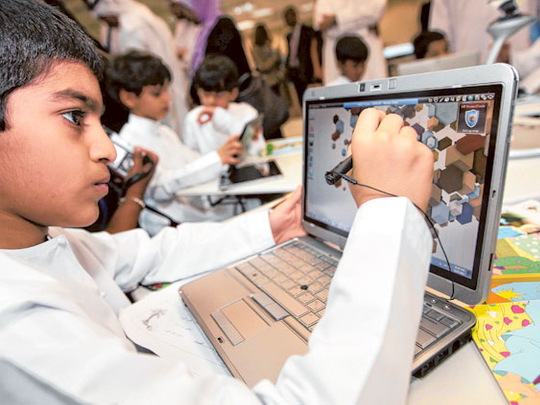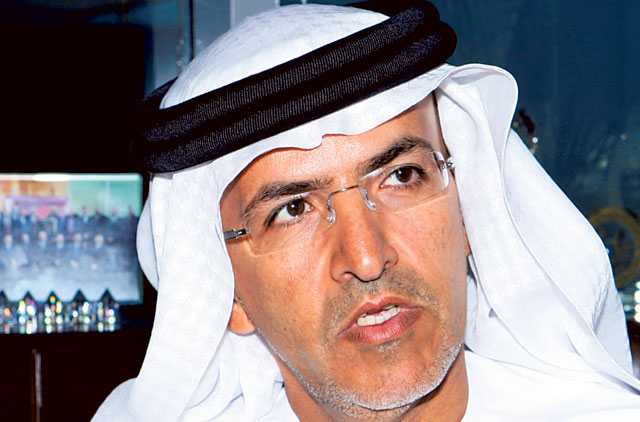
Abu Dhabi: New methods of learning dominate today’s education landscape, and the emirate of Abu Dhabi is following suit by introducing some of the most advanced methods and tools to enhance young minds.
In addition to launching culturally-relevant educational material, the Abu Dhabi Education Council (Adec) has also worked to develop the professional skills of teachers and staff this year.
Other initiatives have focussed on improving infrastructure in the emirate at both public and private schools.
At the core of Adec’s policies is the introduction of the New School Model (NSM) curriculum, which emphasises creative thinking and problem solving over rote learning. The curriculum had already been implemented at all public schools up to Grade 4, and this year introduced hundreds of Grade 5 public school pupils to the new style of learning.
“Now that the NSM has been implemented in all Cycle 1 [Grades 1 to 5] schools, we are working to develop the curriculum to suit Cycle 2 schools [Grades 6 to 9]. These changes will be revealed early next year,” Dr Mugheer Al Khaili, director general at the Adec, told Gulf News.
To support the implementation of NSM, the Adec has also employed more than 2,000 qualified teachers from the UAE and other countries over the last four years. This year, every graduate from Abu Dhabi-based universities with the skills required to teach English, maths and science has also been recruited by the Adec for positions in public schools.
Dr Al Khaili added that the Adec had also set up a public-private partnership to train school leaders in the necessary leadership skills.
“This partnership ended in 2012, and we believe our school leaders now possess the required skills to lead their schools,” the director general said.
In addition to school leaders who have received training, a number of professional development workshops have refreshed the skills of teachers in the emirate. At an event earlier this month, Adec announced the launch of the NSM Sabbatical Programme, which will provide knowledge of early childhood development, the English language and the latest pedagogical techniques to nearly 150 Emirati teachers. In addition, thousands of public school teachers are also improving their proficiency of the English language via another initiative launched in October.
Technical innovations
Adec efforts have also ensured that all public schools in the emirate are connected to an advanced information technology network.
“The network, which cost more than Dh300 million to set up, provides fast access to the internet, thus enabling pupils to conduct research and enhance their knowledge. It also allows teachers to access Adec services easily and swiftly,” Dr Al Khaili said.
In addition, more than 9,000 touchscreen desktop computers have also been distributed among public schools, and 3,000 smart boards have been installed.
Reaching out to parents about their children’s academic performance has also been a key part of Adec efforts in 2012. Hundreds of parents have been trained to use the electronic Student Information System (eSIS), which provides information about children’s school records and academic progress, Dr Al Khaili said.
In addition, a guidebook has also been released this year to equip parents with the skills needed to promote Arabic language learning among their wards.













